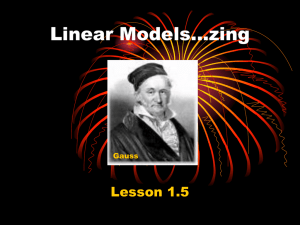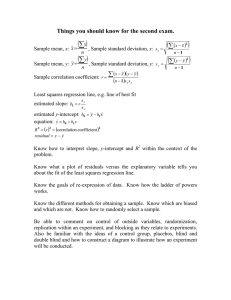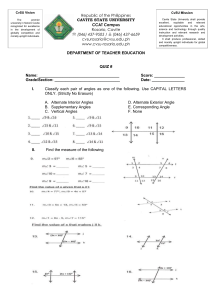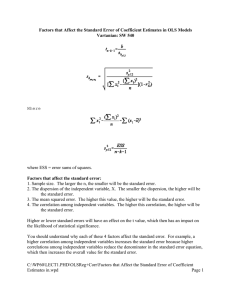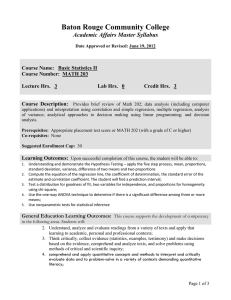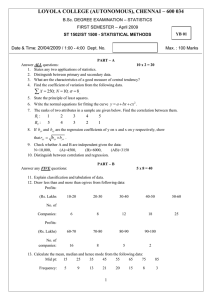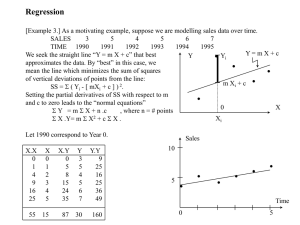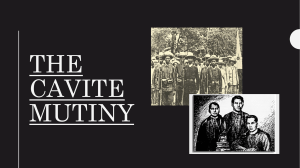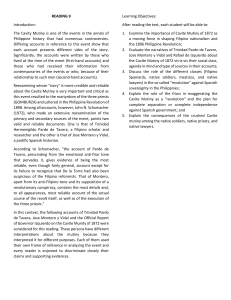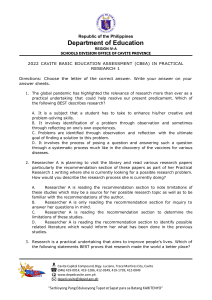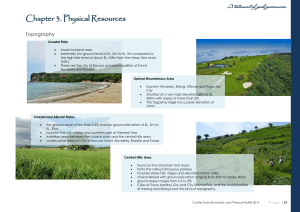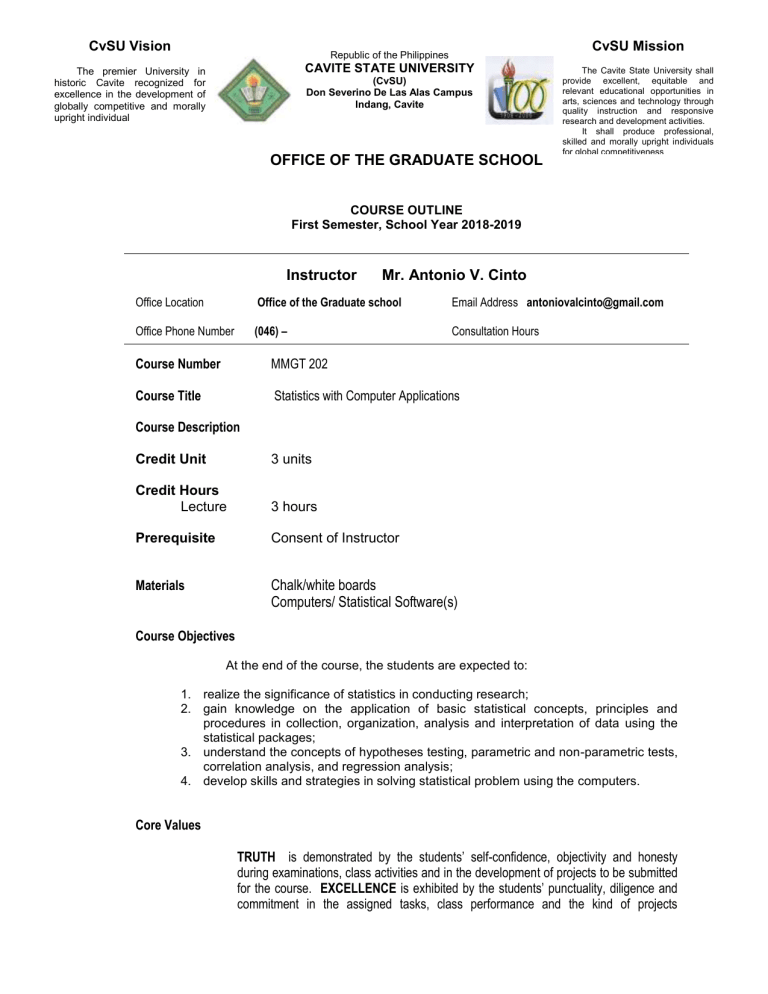
CvSU Vision CvSU Mission Republic of the Philippines CAVITE STATE UNIVERSITY The premier University in historic Cavite recognized for excellence in the development of globally competitive and morally upright individual (CvSU) Don Severino De Las Alas Campus Indang, Cavite OFFICE OF THE GRADUATE SCHOOL The Cavite State University shall provide excellent, equitable and relevant educational opportunities in arts, sciences and technology through quality instruction and responsive research and development activities. It shall produce professional, skilled and morally upright individuals for global competitiveness COURSE OUTLINE First Semester, School Year 2018-2019 Instructor Mr. Antonio V. Cinto Office Location Office of the Graduate school Email Address antoniovalcinto@gmail.com Office Phone Number (046) – Consultation Hours Course Number MMGT 202 Course Title Statistics with Computer Applications Course Description Credit Unit 3 units Credit Hours Lecture 3 hours Prerequisite Consent of Instructor Materials Chalk/white boards Computers/ Statistical Software(s) Course Objectives At the end of the course, the students are expected to: 1. realize the significance of statistics in conducting research; 2. gain knowledge on the application of basic statistical concepts, principles and procedures in collection, organization, analysis and interpretation of data using the statistical packages; 3. understand the concepts of hypotheses testing, parametric and non-parametric tests, correlation analysis, and regression analysis; 4. develop skills and strategies in solving statistical problem using the computers. Core Values TRUTH is demonstrated by the students’ self-confidence, objectivity and honesty during examinations, class activities and in the development of projects to be submitted for the course. EXCELLENCE is exhibited by the students’ punctuality, diligence and commitment in the assigned tasks, class performance and the kind of projects submitted by them. SERVICE is manifested by the students’ respect, rapport and fairness in dealing with their peers and clients. REFERENCES DEAUNA, M. C. (1996). Elementary Statistics for Basic Educations. Phoenix Publishing House, Inc. Quezon City, FREUND, J.E. and SIMON, G.A. (1997). Modern Elementary Statistics. 9th Edition. Prentice-Hall Inc. New Jersey USA. OSTLE, B. (19 ). Statistics in Research. 2nd Ed. The Iowa State Univ. Press. PAREL,, C. et.al (1966). Introduction to Statistical Methods(with Applications), Manila Philippines, Macaraig Publishing Co. Inc. SEIGEL, S. and CASTELLAN, N.J. (1988). Sciences. Nonparametric Statistics for Behavioral WALPOLE, R.A. (1982) Introduction to Statistics. 3rd Ed. New York, McMillan Publishing Co. Inc. Any Statistics Book Course Content Number of Hours A. INTRODUCTION 1.1 Definition of Statistics 1.2 Population and Samples 1.3 Sampling Techniques 1.4 Scales of Measurements 3 B. COLLECTION AND PRESENTATION OF DATA 2.1 Data Collection 2.2 Data Presentation 2.3 Frequency Distribution 2.4 Computer Application 3 C. DESCRIPTIVE STATISTICS 2.1 Measures of Central Tendency 2.2 Measures of Dispersion 2.3 Measures of Symmetry and Skewness 2.4 Measures of Kurtosis 2.5 Computer Application 9 D. NORMAL DISTRIBUTION 4.1 Characteristics of Normal Distribution 4.2 Areas Under the Normal Distribution 4.3 Applications of Normal Distribution 4.4 Computer Application 3 E. HYPOTHESIS TESTING 5.1 Concept of Hypothesis Testing 5.2 Comparing Sample and Population 9 5.3 Comparing Two Samples 5.4 Comparing Three or More Samples 5.5 Computer Applications F. NONPARAMETRIC TEST 6.1 Chi-square 6.2 Wilcoxon Signed Ranked Test 6.3 Mann-Whitney Test 6.4 Friedman Two-way ANOVA 6.5 Kruskall-Wallis One-way ANOVA 6.6 Computer Applications 9 G. TEST OF ASSOCIATION 7.1 Pearson Product Moment Correlation Coefficient 7.2 Spearman Rank Correlation Coefficient 7.3 Phi Coefficient 7.4 Contingency Coefficient 7.5 Cramer’s V 7.6 Point Biserial Correlation 7.7 Computer Applications 9 H. REGRESSION ANALYSIS 8.1 Simple linear Regression 8.2 Multiple Regression 8.3 Computer Application 6
